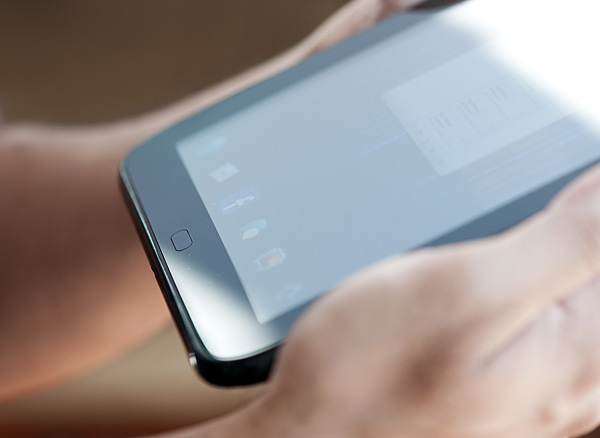It's Not Qualcomm's Fault: Dispelling TouchPad Myths
by Anand Lal Shimpi & Brian Klug on August 19, 2011 6:40 PM EST- Posted in
- Tablets
- HP
- Snapdragon
- OMAP
- Qualcomm
- Smartphones
- touchpad
- Mobile
webOS Needed Work
From the very beginning, webOS needed work in the optimization department. The hardware wasn't at fault, it was the software that always needed tuning, and as we saw with the Pre Plus even throwing more RAM at the problem didn't speed things up enough. We mentioned a number of places where webOS 2.0 still needed work to improve performance and smoothness in the Veer review. First among those really were the criminally long boot times:
"Unfortunately loading times on the Veer are still incredibly long due to some mismanagement of the linux boot process. Unfortunately it appears that WebOS increases the sleep time that apps send to the caller during the boot process from an already crazy 60 seconds to 120 seconds. There's discussion of this on WebOS Internals, but the situation is even worse now, at 120 seconds."
What Palm managed to develop was an excellent UI and front end to an OS, but there's little doubt that the underlying Linux code needed (and still needs) work. Simple tricks like disabling logging and implementing the boot process properly would result in noticeable performance gains. There's little dobut that other similar simple things could dramatically improve performance.
The fact of the matter is that Palm needed a lot of development time to turn webOS into a mature product. The HP of today is trying to turn itself into a fully focused enterprise company and as a result, webOS wasn't going to get the support it needed. An internal source at HP told me that the sales targets for the TouchPad were between the best selling Honeycomb tablets and the iPad. When that didn't happen, HP saw no reason to continue down the webOS hardware path.
As an enterprise company the move makes sense for HP and its shareholders. As consumers, we're disappointed. But the blame doesn't fall on Qualcomm or any chip vendor in the TouchPad, just on HP itself. The TouchPad needed more work, and webOS as a whole needs more work. You can either scale a project out by taking more time to get it done, or you can scale its width by committing more resources to it. The latter (and more efficient development) is what Palm has needed since day one, what HP promised to bring to it, and sadly exactly what it ultimately failed to receive at HP.











79 Comments
View All Comments
LoneWolf15 - Saturday, August 20, 2011 - link
"There is a clear pattern of bias among his reviews where Quadcomm was always favored, and other chipmakers were marginalized even criticized."** - Citation needed.
MrSewerPickle - Saturday, August 20, 2011 - link
Agreed. If you are an unknown source calling into question the validity of a highly known and respected source then you need facts. Otherwise save it for Facebook or Twitter or where ever else you post non fact based comments.jmcb - Sunday, August 21, 2011 - link
I have yet to see what you're talking about. And I've been reading on this site for a few years....before I even knew what chips went inside of phones...or even knowing cpus, gpu's were even being used at all in phones.Griswold - Tuesday, August 23, 2011 - link
Cant spell Qualcomm right but accuses him of being paid by Qualcomm.softdrinkviking - Saturday, August 27, 2011 - link
pro11y just a troll. I mean, he really pulled that out of his a$$. Just wants attention.jjj - Friday, August 19, 2011 - link
HP is about to start selling the Touchpad for 100/150$ (16/32 gigs model).Bestbuy Canada already is http://www.bestbuy.ca/en-CA/product/hewlett-packar...
Brian Klug - Friday, August 19, 2011 - link
I've got Amazon set on check4change in Firefox for when the updated pricing goes live there (supposed to be 8/20). I wonder whether they will also drop the Veer in pricing.I was excited for the Pre 3 too, too bad it'll never see the light of day in the USA. Maybe they'll liquidate those stocks too, they must exist somewhere.
-Brian
lorribot - Friday, August 19, 2011 - link
What worries me is that HP want to turn themselves in to a software company rather than hardware yet it is the lack of software development that has let them down with the whole Palm WebOS piece.Hardware is probably the thing that HP has generally done well, granted there isn't the money there any more, but really HP and software what have they ever done in that field?
VMS, HP-UX remember them? Most of their stuff is crippled by poor development (WebJet admin still won't install on Windows 7) and lack of polish with clunky and flake UIs (WebOS anyone?)
z0mb13n3d - Friday, August 19, 2011 - link
While the article is quite thorough and does give a reasonable explanation of the unfortunate state of webOS, I am more than a bit surprised as to why Anandtech thought it needed to 'clear the air' here. This isn't the first time (and will certainly not be the last) where folks in blogs or forums throughout the internet blame a random vendor for something, but for Anandtech to come out 'defending' a company (Qualcomm in this case) is a bit alarming.I've been reading tech blogs and sites ever since they started more than a decade ago and have always been a regular AT reader because of the unbiased nature of your articles and also because AT never really sides with any brand, vendor or company. I sincerely hope this article does not signal a change in the way AT handles reviews and articles in future!
sprockkets - Friday, August 19, 2011 - link
Why it is a bit "alarming"? Either qualcomm or hp would come out looking bad, so either way would it look bad to you?